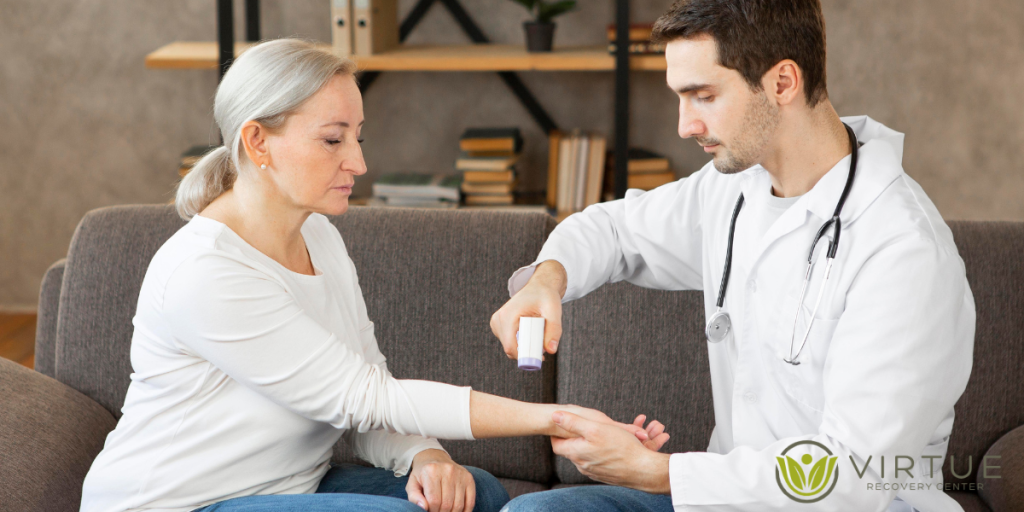Key Takeaways
- Long-term use of Valium can lead to drug addiction, especially in adults with anxiety.
- People with a history of anxiety are more vulnerable to dependency due to emotional regulation challenges.
- Overuse of Valium can affect mood, memory, focus, and the ability to cope without substances.
- Recovery is possible through medically supported detox, therapy, and structured outpatient care.
- Intensive Outpatient Programs can help individuals rebuild their emotional resilience and improve their daily functioning.
- Compassionate care enables individuals to heal without judgment and progress toward long-term wellness.
Introduction
Valium, known generically as diazepam, is often prescribed to treat anxiety, muscle spasms, or sleep problems. It can feel like a lifeline in stressful times, offering short-term relief from overwhelming symptoms. But for many adults, especially those with a history of anxiety, long-term use can quietly lead to drug addiction. This occurrence isn’t because someone is weak or lacks willpower. It’s because Valium and other benzodiazepines change how the brain reacts to stress, emotion, and daily functioning. Over time, your body starts to depend on the drug just to feel normal. Unknowingly, the distinction between “treatment” and “dependency” can become hazy. Is there any positive news? Recovery is not only possible, but it can also be transformative. Let’s look at how Valium addiction develops in adults with anxiety and how personalized treatment can help you regain control of your life.How Does Valium Work and Why Is It So Addictive?
Valium belongs to a class of drugs called benzodiazepines. These medications work by calming the brain’s overactive nerves, reducing anxiety, and creating a sense of peace or sedation. In the short term, this is helpful. But in the long run, your brain starts to rely on the drug to regulate mood and stress. As explained in this video on how drug addiction affects mood and emotional regulation, long-term Valium use disrupts the brain’s natural chemical balance. You may find that you need more of the drug to feel the same effect, or that stopping it causes withdrawal symptoms like irritability, insomnia, panic, or depression. That’s how drug addiction slowly takes hold. Your brain stops making its calming chemicals and expects the pill to do all the work.Why Are People With Anxiety at Greater Risk?
Adults with anxiety often feel overwhelmed by their emotions, thoughts, and physical symptoms. Their nervous systems are more sensitive to stress, making calming medications like Valium especially appealing. According to research published in the National Institutes of Health, people with anxiety disorders are more likely to develop substance dependence. That’s not due to personal failure; it’s due to biology. Anxiety disorders increase sensitivity to stress and discomfort, and Valium temporarily numbs those sensations. But this relief comes with a cost. Over time, the body’s natural ability to regulate stress weakens. People may start using the drug not just for anxiety episodes, but for sleep, social situations, or daily functioning. That’s when dependency sets in.What Are the Signs of Valium Dependency?
If you’ve been using Valium for a while, it’s essential to ask yourself a few honest questions:- Do you require higher doses to achieve the same effect?
- Do you feel anxious or shaky without it?
- Are you taking it outside of your prescription?
- Do you worry about running out or hiding your use from others?
How Does Drug Addiction Affect Daily Functioning?
Valium misuse doesn’t just affect your mood; it impacts your memory, focus, relationships, and motivation. You may feel mentally “foggy,” emotionally disconnected, or less present with loved ones. In a 2023 NIH study, long-term benzodiazepine use was linked to cognitive decline, emotional flattening, and withdrawal-related anxiety. These effects can create a vicious cycle where the drug is used more often to cope, making the dependency even stronger.
How Do Treatment Programs Support Lasting Recovery?
Breaking free from Valium dependence requires more than just stopping the medication. It’s about learning new ways to manage anxiety, regulate emotions, and build inner confidence. That’s where structured treatment, like the Intensive Outpatient Program at Virtue Recovery Las Vegas, makes a real difference. These programs enable you to receive therapy and support several days a week while continuing to live at home. You get:- Individual therapy focused on anxiety and trauma
- Group support to connect with others facing similar challenges
- Skill-building for stress management and emotional control
- Help with rebuilding routines and restoring balance.
Can I Manage Anxiety Without Medication?
Yes, though it may not feel possible at first. With the proper support, many people learn to manage anxiety through therapy, lifestyle changes, mindfulness, and healthier coping habits. Research published in PMC supports that cognitive-behavioral therapy (CBT) is one of the most effective treatments for anxiety and substance use combined. CBT helps retrain the brain’s response to fear, stress, and worry, without relying on substances like Valium. Meditation, exercise, journaling, and even dietary adjustments can also help calm the body’s stress response. You don’t have to figure this out alone. A treatment team will guide you through the process step by step.Can Treating MDMA Abuse Help Address Valium-Based Drug Addiction in Adults with a History of Anxiety?
Recent studies suggest that utilizing mdma abuse and trauma interventions can be pivotal in addressing Valium-based drug addiction among adults with anxiety histories. By focusing on underlying trauma, these innovative treatments may reduce reliance on benzodiazepines, fostering healthier coping mechanisms and promoting long-term recovery.









